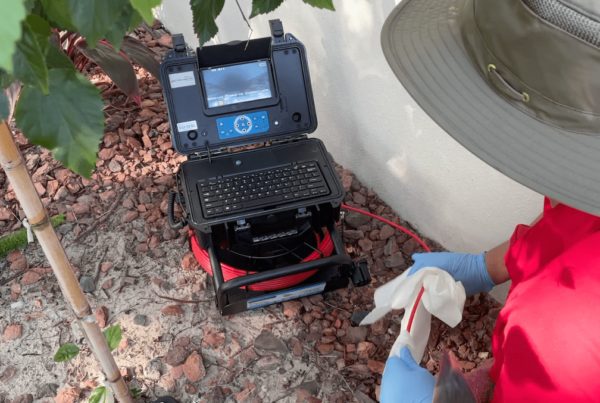
Home inspection myths are rampant in Real Estate. Unfortunately, this can lead to unrealistic expectations or miscommunication.
It is important to understand the home inspection process fully before going through it. Your real estate agent, or home inspection company should be able to answer your questions so you understand the process.
Here at the Top 10 MOST COMMON Home Inspection Myths to get you started. If you have any questions, be sure to drop a comment below!
You Can Fail A Home Inspection
Absolutely False.
Home inspections are reports based on an expert opinion. Therefore, the report should only be used as such… an opinion of the condition of the home.
Nothing in the report passes or fails. This does not mean items could fail in other areas of your home buying process.
For instance, exposed wiring (although does not fail a home inspection report) may fail a mortgage lending requirement or an insurance requirement. Ultimately, this depends on your lending and insurance situation.
Home Inspectors Help You Negotiate
Another absolutely false statement.
Home inspectors are there, again, to give their expertise on the home. Home inspectors are not experts in negotiations, nor have they ever negotiated.
You should always consult home inspection findings with your real estate agent to better understand how to negotiate items in the report.
Home Inspectors Work With Your Real Estate Agent
Another common home inspection MYTH.
Home inspectors work for the person who hired them, or paid them. In almost all cases, the home buyer pays for the home inspection, therefore, the home inspector is ethically tied to work for you and only you.
A home inspector, in general, will share your home inspection report with your Realtor, but this is of course in your best interest. A home inspector will not share the report with anyone else.
A Little Side Note
There are some unethical home inspectors out there. Just as there are unethical real estate agents. These home inspectors, may want to protect their relationship with a real estate agent in order to continue getting referrals.
So it is possible to have an unethical home inspector that works closely with a real estate agent who downplays major defects in order to make the home sell.
As long as you do your research into home inspection companies and real estate agents, you should be in the clear of this.
You Should Give Your Home Inspection Report To Your Insurance Agent
Another solid home inspection myth.
A home inspection report, is YOUR report. You paid for it. Insurance companies have no right to your home inspection report.
However, this does not mean your insurance agent may request a specific type of home inspection for their own research and recording. Florida actually has an insurance specific inspection called a four point.
New Construction Does Not Need A Home Inspection
I have said this in so many blogs before, new construction NEEDS a home inspection.
Every new construction home I have personally inspected has found something wrong. Now, this does not mean an inspector will find something seriously wrong with the home.
For evidence, however, check out this find on a new construction home:
Oh, you can also check out our other blogs and page on new construction.
You Need To Share The Inspection Report With The Seller
A home inspection report is owned by the home inspection company and the one who pays for the home inspection (almost always the home buyer).
A home buyer does NOT have to share their home inspection report with anyone. It is recommended to share your home inspection report with your Realtor so you can intelligently negotiate and understand the report.
Home Sellers Have To Fix Items Written In The Report
Most real estate contracts, especially in Florida, are AS-IS contracts. This means the seller does not have to fix anything. However, the buyer has the right to leave the deal for practically any reasoning – most of the time it is inspection related.
In the majority of cases, your Realtor will guide you on what you can and cannot request from the home seller. It is dependent on the seller if they want to fix items or renegotiate home pricing.
Major items like roof leaks or safety hazards are most often requested to be fixed by the seller.
A Long Inspection Report Means The House Is Trash
Home inspection report length does not translate into a bad home. In fact, older homes generally have outdated materials and safety issues. Moreover, older homes can be priced more than their new construction counterparts due to location or the design.
If a report is “long” you should speak with your home inspector and Realtor about the typical finds on a house of that age and location. This way, you can better understand the normal conditions of a house that age.
For instance, older homes are just prone to have water damage and termite damage since they have had a longer chance to get it.
City/County Inspections Are The Same As Home Inspections
A city or county may complete a roof or fire inspection. But, the standards for these inspections are not the same standards for the typical home inspector.
While a city/county inspector signs off on permitting information, they typically do not walk the roof and look for installation defects.
On the other hand, home inspectors have expert knowledge and walk roofs to provide recommendations on the install.
A perfect example would be home inspectors would check for cracked shingles or that a vent was installed to manufacturer’s specifications. However, government inspectors are checking for general completion.
All Home Inspectors Have Standards For Estimating Roof Lifespans
Not all home inspectors are the same. In fact, they could have different backgrounds and experiences that can influence their opinion on life expectancy.
To illustrate, a 3-tab shingle on a beach house may only have 2 years life left. An inexperienced inspector may not understand how much roof life can be affected with coastline winds, hurricanes, or salt air and high sun exposure.
Therefore, while the shingle is a “30-year shingle”, it may only have 1 year life left, if the roof is not maintained/repaired. An unexpected hurricane may rip off the roof past repair.
Conversely, a home buyer may need at least 3 years of roof life left for insurance purposes. So while, a home inspector could suggest the lifespan of a roof is 3 years, a roof may only last 1 given a wind event hits.
Bonus Home Inspection Myth: Home Inspectors Are About The Same
Home inspectors are so different in their backgrounds and education. There are many different home inspector schools, as well as, home inspector exams.
Also, some states may not require home inspector licensing.
Therefore, all home inspectors are different in how they convey messages, how they write reports, and their inspection process.
There are home inspection associations which provide some clarity. Be sure to check with your home inspector to find out which associations they are with and to find their standards of practice.
You can view the main Florida Home Inspector Associations here.
InterNACHI and ASHI are the two main home inspector associations.
Concluding on Home Inspection Myths & Facts
I hope I have provided some clarity into the home inspection process and what you can expect from your home inspectors.
If you have any further questions, be sure to leave a comment.



